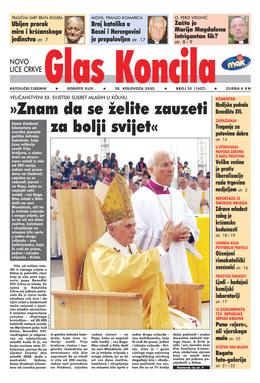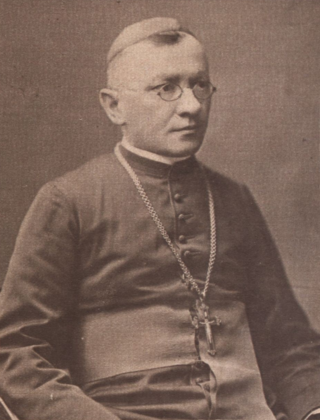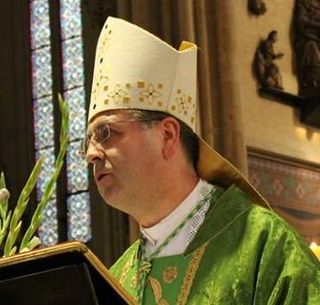
The University of Ljubljana, abbreviated UL, is the oldest and largest university in Slovenia. It has approximately 38,000 enrolled students. The university has 23 faculties and three art academies with approximately 4,000 teaching and research staff, assisted by approximately 2,000 technical and administrative staff. The University of Ljubljana offers programs in the humanities, sciences, and technology, as well as in medicine, dentistry, and veterinary science.

The University of Zagreb is a public research university in Zagreb, Croatia. It is the largest Croatian university and one of the oldest continuously operating universities in Europe. The University of Zagreb and the University North are the only public universities operating in Northern and Central Croatia.

Glas Koncila is a Croatian, Roman Catholic, weekly newspaper published in Zagreb and distributed throughout the country, as well as among Croats of Bosnia and Herzegovina and Croatian diaspora.
The Vladimir Nazor Award is a Croatian prize for arts and culture established in 1959 and awarded every year by the Ministry of Culture.

Josip Stadler was a Croatian Roman Catholic priest, the first Archbishop of Vrhbosna, the founder of the religious order of the Servants of the Infant Jesus.
Tomislav Ivančić was a Croatian theologian and academic.

Anton Mahnič, also spelled Antun Mahnić in Croatian orthography, was a Croatian-Slovenian prelate of the Catholic Church and a philosopher who established and led the Croatian Catholic Movement. Mahnič served as the bishop of Krk from 1897 to his death in 1920.
Croatian literature refers to literary works attributed to the medieval and modern culture of the Croats, Croatia, and Croatian. Besides the modern language whose shape and orthography was standardized in the late 19th century, it also covers the oldest works produced within the modern borders of Croatia, written in Church Slavonic and Medieval Latin, as well as vernacular works written in Čakavian and Kajkavian dialects.

The House of Pejačević or Pejácsevich is an old Croatian noble family, remarkable during the period in history marked by the Ottoman war in the Kingdom of Croatia and Austro-Hungarian Empire respectively. Notable members of the family were politicians, clerics, artists, senior military officers, Bans (viceroys) of Croatia and other high state officials. They were very potent and influential in the political, social, economic and cultural life of the country, and especially distinguished in the region of Slavonia. In German and Spanish, the family name was sometimes rendered Pejacsevich, i.e. a simplified variant of the Hungarian spelling.
Bible translations into Croatian started to appear in fragments in the 14th century. Efforts to make a complete translation started in the 16th century. The first published complete translations were made in the 19th century.

Antun Bauer was a Croatian theologian and philosopher who served as Archbishop of Zagreb.
Rudolf Vimer was a Croatian prebendary, rector of the University of Zagreb, dean of the Catholic Faculty of Theology, corresponding member of the Yugoslav Academy of Sciences and Arts, writer, polyglot and benefactor.

Ivan Devčić is a Croatian prelate of the Catholic Church and university professor of philosophy. He was the archbishop of the Roman Catholic Archdiocese of Rijeka between 2000 and 2022.

Ivan Šaško is a Croatian prelate of the Roman Catholic Church who serves as Auxiliary bishop of the Roman Catholic Archdiocese of Zagreb since March 29, 2008.

Croatia–Holy See relations refer to the bilateral relationship between Croatia and the Holy See. Diplomatic relations among the two countries were established on February 8, 1992, following Croatia's independence from SFR Yugoslavia, although they date far back in history.
Josip Weissgerber, was a Croatian Jesuit, philosopher, writer and missionary.

Bishop Tomislav Rogić is a Croatian Roman Catholic prelate who is currently serving as the Diocesan Bishop of Roman Catholic Diocese of Šibenik since 3 June 2016.

Catholic Faculty of Theology is a faculty of the University of Zagreb specialised for philosophical-theological study that was established in 1669.











